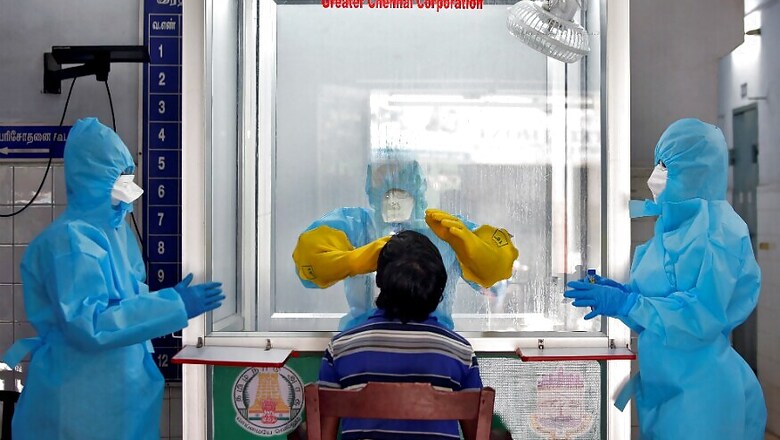
views
New Delhi: The growing number of relapse cases of Covid-19 could be linked to lower level of immunity developed in patients who have had mild infections on being exposed to the virus, say scientists investigating the global pandemic which has claimed more than a hundred thousand lives world over.
“The reason behind it is that there are studies which have found the virus may replicate only within some of the surface cells of the respiratory tract and it may not be severe enough to actually allow the body to develop an immune reaction to it,” Professor John Nicholls of Department of Pathology from Hong Kong University said in an interview this week.
Exposure to foreign elements like virus triggers a defence mechanism to fight the disease-causing pathogen. The anti-bodies thus generated remain active in our bodies as they continue to provide a protective shield even after the infection has subsided, thus reducing chances of re-infection.
But mild clinical reactions in patients may not induce strong antibody reaction to stop a second bout of disease on being exposed to the virus.
“And this is quite important because these patients (with mild infections) still potentially can get the infections the second time,” Nicholls further explained in the interview.
So far, scientists have attributed second infections in Covid-19 patients to false negative testing and re-activation of the virus.
Last week, South Korea reported more than 150 Covid-19 positive cases among patients who had earlier fully recovered.
Some studies in China, though still open to peer review, suggest nearly a third of Covid-19 patients developed low level of antibodies. In some patients, the anti-bodies could not be detected at all.
The World Health Organisation has said nearly 25% of the Covid-19 patients in China have been asymptomatic while issuing a warning that there’s no evidence to suggest anti-body or finger-print fast tests can show whether a person has immunity or is no longer at risk of becoming re-infected.
“These antibody tests will be able to measure that level of serology presence, that level of antibodies, but that does not mean that somebody with antibodies is immune,” Dr Maria Van Kerkhove, head of WHO’s emerging diseases, clarified earlier this week.
The spread of a highly contagious infection like Covid-19 is slowed as people start to develop immunity to the virus on either being infected by the pathogen or through preventive pharmaceutical intervention like vaccination.
If a section of the patients already exposed to the virus continues to be at risk of getting infected again, it may put extra burden on the already stretched public health system. It may also delay creation of the critical mass of antibody carriers required to reach levels of herd immunity to restrict transmission of the microbe.




















Comments
0 comment